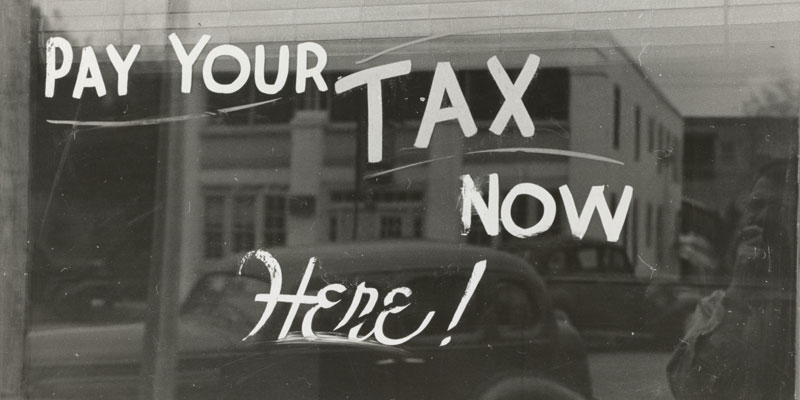Counting the Cost: The Pitfalls of a Cashless Society
Dec 08, 2023 By Triston Martin
In an era dominated by digital advancements and technological leaps, the concept of a cashless society has gained momentum. The ease of digital transactions and the allure of a streamlined financial landscape have prompted many countries and businesses to move away from traditional cash-based systems.
While the transition to a cashless society brings its fair share of benefits, it is crucial to dissect the potential drawbacks that might lurk beneath the surface.
Exploring the Pitfalls of a Cashless Society
Dive into this comprehensive section to explore the alarming disadvantages of a cashless society!
Privacy Concerns in a Cashless World

One of the primary disadvantages of a cashless society revolves around privacy concerns. In a digital realm where every transaction leaves a trace, individuals might find themselves uncomfortably exposed.
Unlike cash transactions that can be anonymous, digital transactions create a comprehensive trail of one's spending habits. Financial institutions and even tech companies can access this data, potentially leading to an intrusion into personal lives.
Imagine a scenario where every purchase, from a simple cup of coffee to more private expenditures, is cataloged and analyzed. The loss of financial anonymity may lead to targeted advertising, invasion of privacy, and an increased susceptibility to identity theft.
In a cashless society, personal financial information becomes a commodity, raising questions about the extent to which individuals are willing to sacrifice their privacy for the convenience of digital transactions.
Exclusion and Technological Disparities
While digital transactions are becoming more prevalent, it's essential to acknowledge that not everyone has equal access to technology. The shift to a cashless society may inadvertently exclude segments of the population that lack access to smartphones, internet connectivity, or basic digital literacy skills.
This exclusionary aspect creates a financial divide, where those without access to digital tools face barriers to participating fully in the economy.
In rural areas or economically disadvantaged communities, individuals might find themselves at a disadvantage, unable to embrace the cashless wave. This raises concerns about societal fairness and the unintended consequences of leaving certain populations behind. A cashless society, while seemingly inclusive on the surface, may deepen existing economic disparities.
Vulnerabilities to Cyber Threats
In a world reliant on digital transactions, the susceptibility to cyber threats becomes a significant concern. Hacking, data breaches, and other cyber crimes pose a substantial risk to the security of financial information. As more transactions occur in the digital realm, the potential for malicious actors to exploit vulnerabilities in online systems increases.
The consequences of a large-scale cyber-attack on a cashless infrastructure could be catastrophic. Not only could individuals face financial losses, but the overall stability of the economy could be compromised. The need for robust cybersecurity measures becomes paramount in a cashless society, and any lapses in this regard could have far-reaching implications.
Dependency on Technology and System Failures
A cashless society places an unprecedented level of dependency on technology. While digital systems are designed to streamline processes and enhance efficiency, they are not immune to technical glitches or failures.
System outages, software bugs, or even cyber attacks can disrupt the entire financial ecosystem, leaving individuals temporarily unable to access their funds or make transactions.
Consider the inconvenience and potential chaos that could ensue if a widespread technical issue occurred, paralyzing digital payment systems for a significant period. In such scenarios, the absence of a physical alternative like cash could amplify the impact, highlighting the vulnerability of an entirely cashless framework.
Loss of Tangibility and Emotional Connection
Beyond the practical concerns, there's a more intangible aspect to the move towards a cashless society – the loss of tangibility. Physical currency has a tactile quality that is absent in digital transactions. The act of counting money, feeling the texture of banknotes, and handing over physical currency creates a tangible connection to one's finances.
In a cashless world, this sensory experience is replaced by abstract digital figures on a screen. The detachment from physical currency may result in a diminished emotional connection to money, potentially leading to overspending or a lack of awareness about one's financial situation.
The psychological impact of this shift should not be overlooked, as it may influence individuals' attitudes and behaviors towards money.
Navigating the Cashless Waters: Practical Tips for a Smoother Transition
Let’s now have a look at some effective tips for navigating the cashless society!
Digital Literacy Empowerment
Invest in digital literacy programs to ensure that individuals from all age groups and backgrounds have the necessary skills to navigate the digital financial landscape.
Diversify Payment Options
Encourage businesses to offer multiple payment methods, including digital and traditional, to cater to a diverse customer base and minimize exclusionary practices.
Enhance Cybersecurity Awareness
Educate the public on cybersecurity best practices to mitigate the risks associated with a cashless society. Simple steps like using strong passwords and being cautious with personal information can go a long way.
Promote Inclusive Technologies
Advocate for the development of inclusive technologies that consider the needs of individuals with disabilities, ensuring that the cashless transition is accessible to everyone.
Government Support for Small Businesses
Governments should implement supportive policies and financial incentives to assist small businesses in adapting to digital transactions, thus minimizing economic disparities.
Consumer Privacy Protections

Enforce robust privacy protection measures and regulations to safeguard individuals from potential misuse of their financial data in the digital realm.
Conclusion: Striking a Balance in the Digital Age
While the advantages of a cashless society are evident, it is crucial to recognize and address the potential disadvantages. Privacy concerns, exclusionary dynamics, cyber threats, technological dependencies, and the loss of tangibility all contribute to the complex landscape of transitioning away from physical currency.
As we navigate the path toward a digital future, policymakers, businesses, and individuals must work collaboratively to mitigate these drawbacks. Striking a balance between the convenience of cashless transactions and the preservation of privacy, inclusivity, and security is essential.





